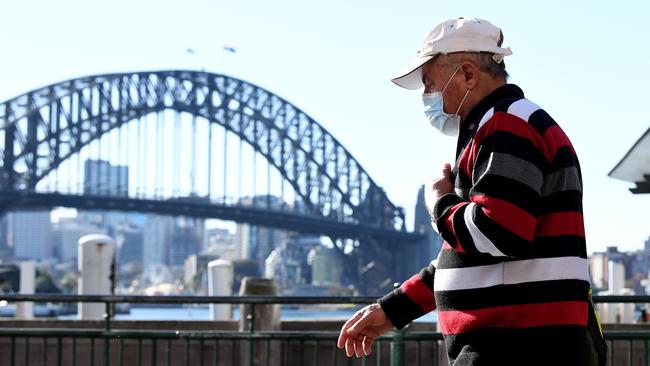VIC vs NSW: How contact tracing systems compare
Health experts have slammed Victoria’s COVID-19 contact tracing system, with many pointing to the system used in NSW as the gold standard for keep infections in check. So what’s the key to NSW’s success and where has Victoria gone wrong?
Coronavirus
Don't miss out on the headlines from Coronavirus. Followed categories will be added to My News.
Victoria’s capacity to stop the spread of COVID-19 has been criticised by health experts and Prime Minister Scott Morrison.
Changes to contact tracing — a system used to track an infected patient’s recent movements to ensure the virus is not passed on — are now being made in Victoria.
And a team of experts will visit NSW to see why that system has been described as the gold standard.
Chair in epidemiology at Deakin University, Catherine Bennett, said a decentralised system in NSW enables teams with knowledge of a local area quickly establish key contacts. Public Health Association of Australia chief executive Terry Slevin said funding preventive measures has taken a back seat to hospital funding in Victoria.

THE VICTORIAN SYSTEM
Works via a centralised model — the Department of Health and Human Services was in control of contact tracing measures and databases.
This meant people without expertise in a local health network were asking patients about their movements and activity. It began with a small contact tracing team of 16 during the early weeks of the pandemic, but scaled up during the virus’s first wave.
When regional areas became involved, they often had to work off paper or whiteboard systems that were later fed into a database by DHHS. Deputy Chief Medical Officer Nick Coatsworth said Victoria’s contact tracing had quickened over the past few weeks, in part due to movements away from paper to digital systems.
Chair in epidemiology at Deakin University, Catherine Bennett, said Barwon Health had done its own tracing because “it’s not just about speed of response it’s about quality of engagement”.
Problems with data sharing by DHHS have also emerged, and antiquated systems that aren’t able to match case links properly. The government has bought a software system from IBM to review data. The size of Victoria’s contact tracing team was cut once the first wave receded, and Premier Daniel Andrews said “you have to learn from that”.

THE NSW SYSTEM
Runs on a system that includes 15 local health districts — including eight in metropolitan Sydney — that provide speciality services in those regions.
Prof Bennett said the key to its relative success was it didn’t act in silos, with information shared with a centralised database.
Experts say the ability for the devolved health districts to use local knowledge and work with organisations, including through culturally-adjusted messaging, helps boost the efficacy of contact tracing.
Doctors say the more nuanced questions asked of patients, the more effective contact tracing becomes.
For example a local area response might know a local coffee shop next to a hardware store visited by a patient, and will ask if they stopped in there.
A tick-box exercise would ask where a patient went for the past two weeks.
Public Health Association of Australia chief executive Terry Slevin said a training system run over three decades in NSW regional public health units had produced 300 leaders in the field.
Prime Minister Scott Morrison has asked chief scientist Alan Finkel to visit NSW and study their contract tracing unit, and report back.
A deputy secretary from the DHHS in Victoria will also be sent.
